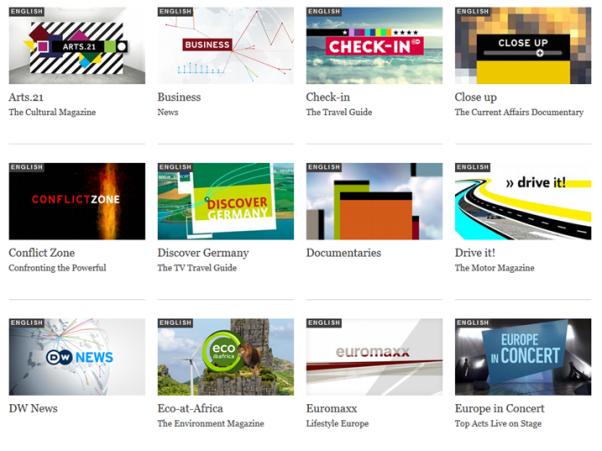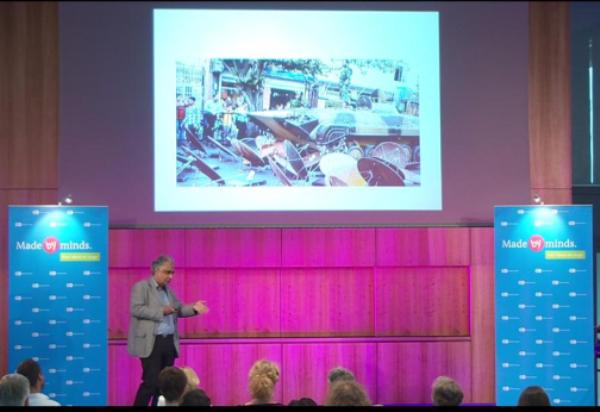Search Results for Tag: Iran
Market roundup: September 2016
The news aggregation app, Smartnews, now includes English-language content from DW. The product of a Japanese startup, Smartnews has 13 million monthly users and was nominated this year for the Google Play Awards in the innovation category.
After expanding cooperation with the censorship circumvention specialists, Psiphon, DW’s Farsi news content is reaching more people in Iran. In one month, more than 85,000 daily users have been able to access DW’s independent and accurate global news coverage using Psiphon’s desktop and mobile technology. DW has worked with Psiphon for several years to deliver content to places where local sensors block international news.
Asia
The most advanced IPTV provider in India has acquired DW’s English-language channel, DW, for its channel package. Bangalore-based LukUp Media operates a “light stream” network that keeps transmission costs low and makes LukUp content more affordable for a wider group of consumers. In its first year of operation LukUp has added 150,000 subscribers.
DW is now on the OTT platform My Super TV in Hong Kong operated by the pay TV partner TVB. DW’s English-language channel, DW, will be available along with other international providers.
The second-largest cable provider in Pakistan is carrying DW. Tri Star cable in Lahore broadcasts the DW’s English language channel, DW, to more than 100,000 subscribers. And DW is being carried by a new cable partner in Mardan, Pakistan. Mardan Cable Network is the largest provider in the city with 35,000 subscribers.
Finding allies in the cat and mouse game of censorship in Iran
In places where media freedom is guaranteed, censorship isn’t given a second thought. In places like Iran, people confront it every day. On television, newspapers, radio and online censorship in Iran is everywhere. There is a war of information in Iran with propaganda adding to the oppression of free information. People try and find information on the one side, and the government tries to stop it on the other.
In Iran, DW’s online content in Farsi has seen huge leaps in usage since Iranian authorities clamped down on the Iranian internet. By using circumvention techniques like Psiphon, DW has been able to provide people in Iran with unbiased news coverage. But it is a game of cat and mouse , and the rules change constantly. What worked a year ago often has to be changed. DW keeps up with the latest technology and has many partners with the same goal.
DW is joined by a group of international broadcasters known as the DG 7, which includes the BBC and France Médias Monde that meet and work together regularly to create solutions together and keep up with fighting censorship around the world.
Joining a plenary discussion on censorship at this year’s Global Media Forum is the Iranian journalist Arash Sigarchi. He is now Web Manager of Voice of America (Persian) in the USA. He was imprisoned for three years in Iran for using a blog and telephone interviews to try and get around government censorship. Now Sigarchi says that new possibilities of social media give people many ways to freely share information. This and the consistent effort of international broadcasters like DW to get through to people all over the world, can help ensure the future is built on truth.
Making online censorship obsolete
 Guest commentary
Guest commentary
Oliver Linow, Technical Distribution at DW
It’s not always easy to deliver reliable information to audiences around the world. During the Cold War, Deutsche Welle (DW) had to regularly deal with broadcasting signals being disrupted, preventing listeners in Russia and the Eastern block from tuning in. At that time it was known as jamming.
Technology and distribution channels may have changed and the Cold War now seems like ancient history, but the problem remains: There are still those who try and prevent international broadcasters like DW from reaching their intended audience. The perpetrators are governments, most notably in Iran and China, who are looking to buffer their citizens from international news and information online. But we don’t take this lying down. The Technical Distribution department at DW is responsible for ensuring that content is available on censored networks. And, over the last few years, we have been utilizing a censorship circumvention system developed by Psiphon Inc. based in Canada.
Psiphon works by using a network of different proxy servers (an intermediary between a user and an online source). Psiphon has also developed software and applications designed for desktop and mobile devices that circumvent online censors. DW uses these networks and applications to make content available in censored areas. When logging on to the proxy URL or when starting an application, users in Iran for example, will be redirected to DW’s Farsi homepage and users in China to the Chinese page. Other users are directed to a landing page and can then reach the respective DW site.
Thanks to the introduction of Psiphon technology, users in countries like China and Iran have been given the power to access unbiased information from reliable sources. By engaging in this technology, we have sent a message: DW will never give up trying to provide unbiased, quality news and information to ALL audiences around the world.
Predicting how these issues will play out in the future is difficult. There are currently many indicators that the Internet will be even more regulated. Whether it is to fight crime and terrorism, preserving moral and religious precepts (like preventing access to pornography in Arabic countries), commercial interests (when content providers have to pay network operators for quality access) or political interests and influencing public opinion – there are numerous motivations for filtering online content. The International Telecommunications Union (ITU), the United Nations specialized agency for information and communication technologies, refers to such measures as “Internet regulation”. Conversely, online activists want to see continuous, uncontrolled traffic on the information superhighway, and will speak out against even the smallest amount of censorship.
Getting around censorship is a game of cat and mouse requiring software that is continually updated in order to circumvent firewalls that are also continually improving in functionality. Soon Psiphon will provide an Application Programming Interface (API), a type of software which will equip certain Smartphone Apps with a censorship circumvention function. This technology would make DW Apps available in Iran and China.
In the future it will surely not be a simple task for international broadcasters like DW to provide worldwide Internet services on every network in every country. One thing we do know is that as technology expands and politics become more complicated, the issues related to Internet regulation will become more and more important.






Feedback